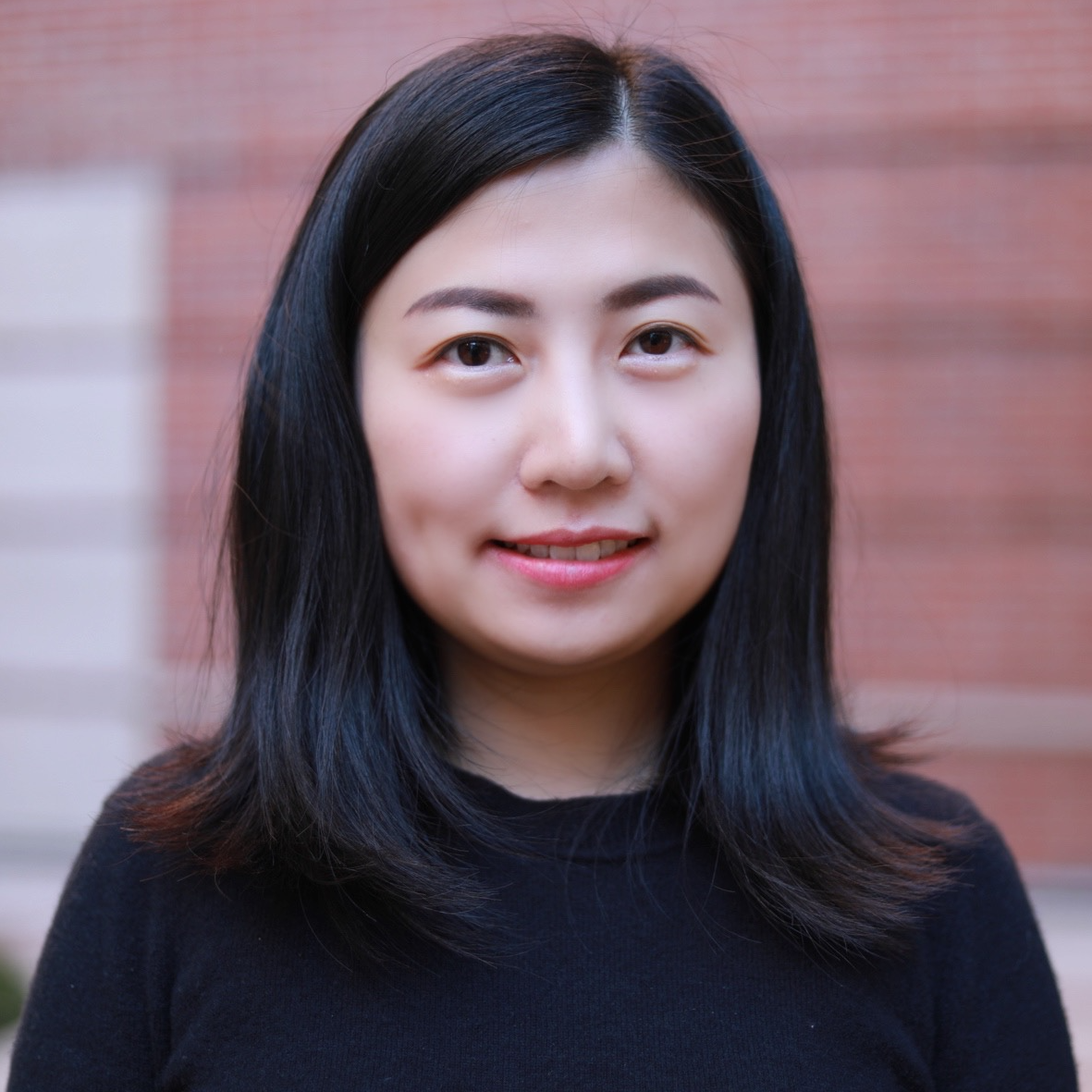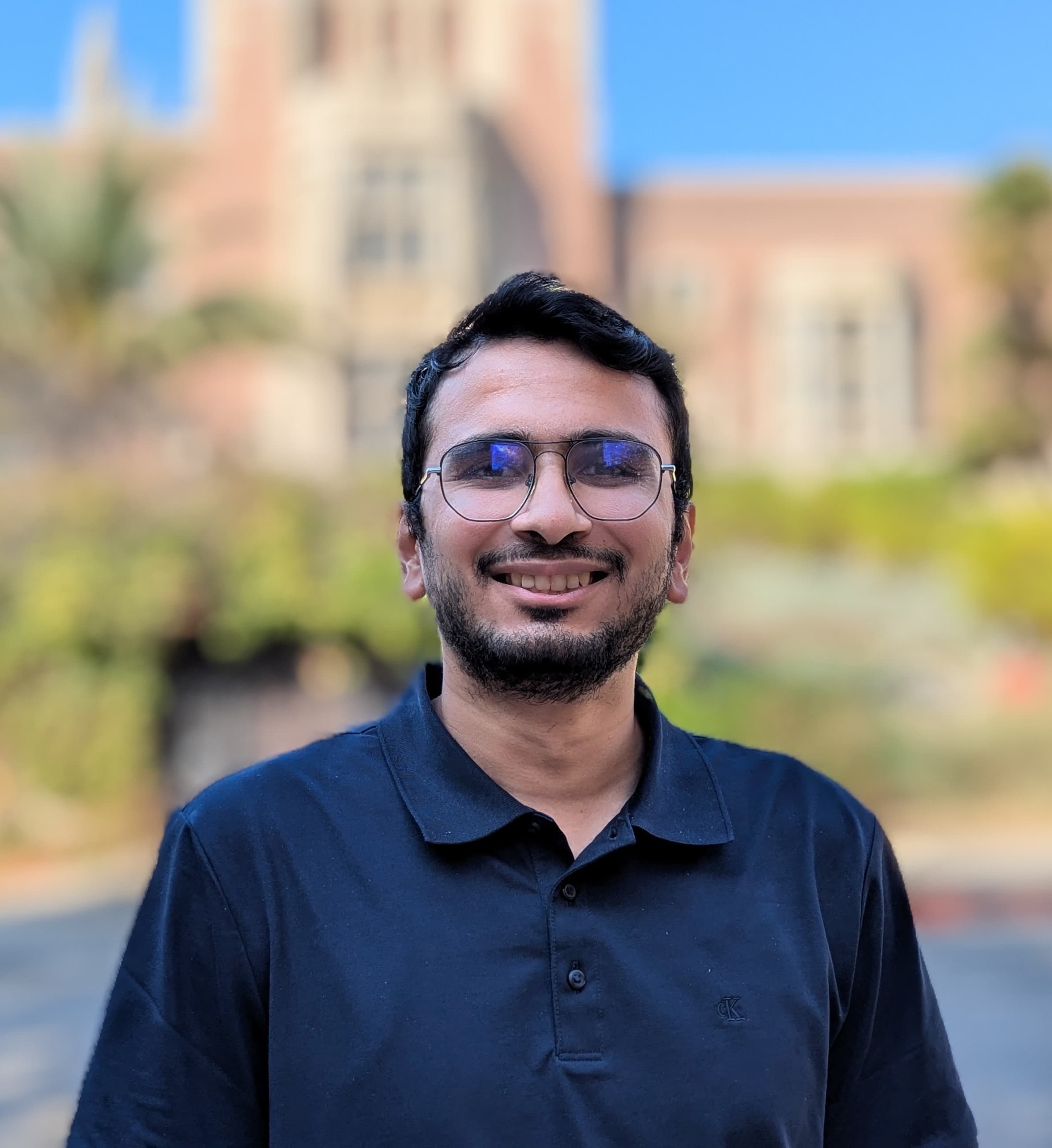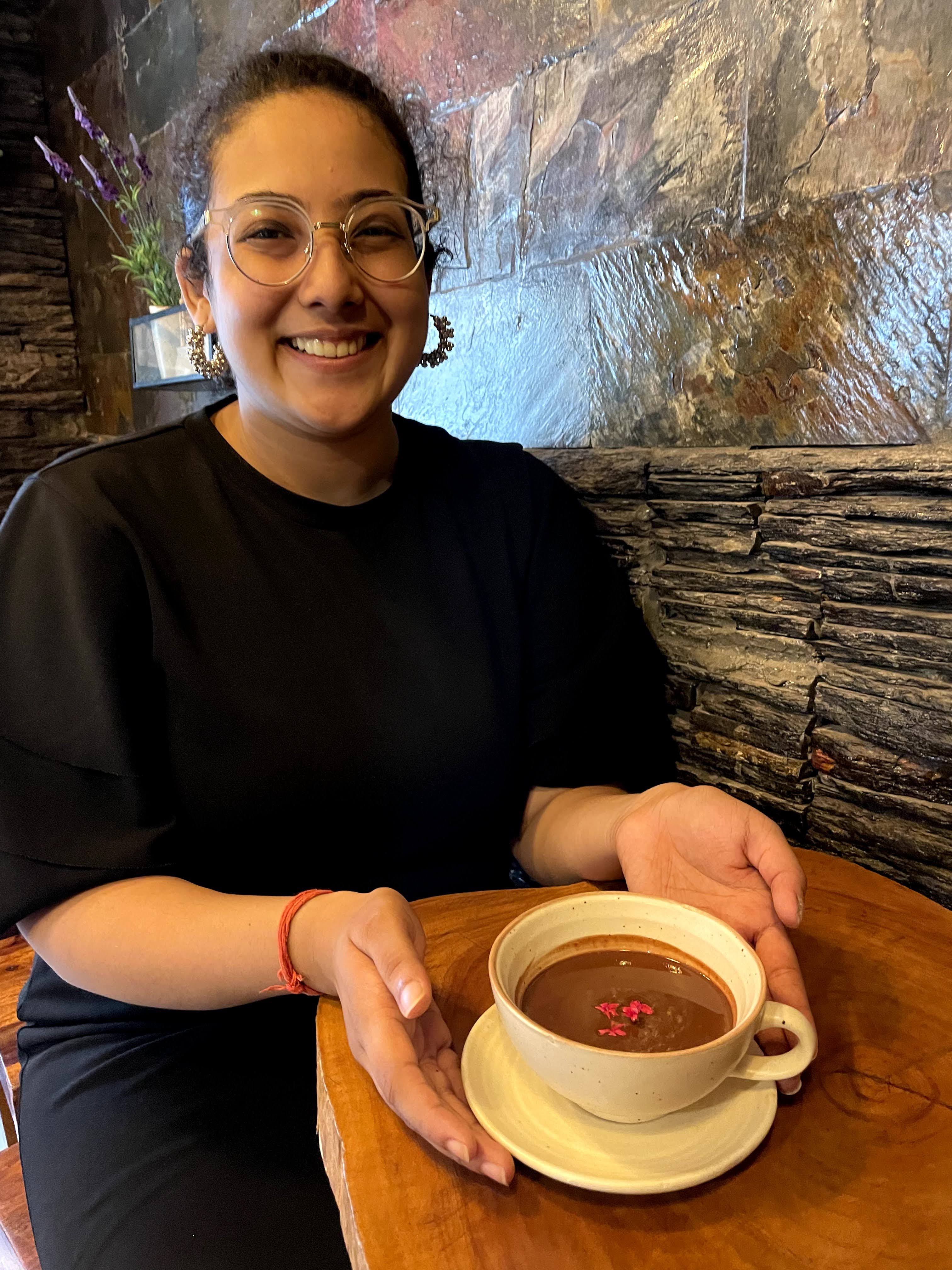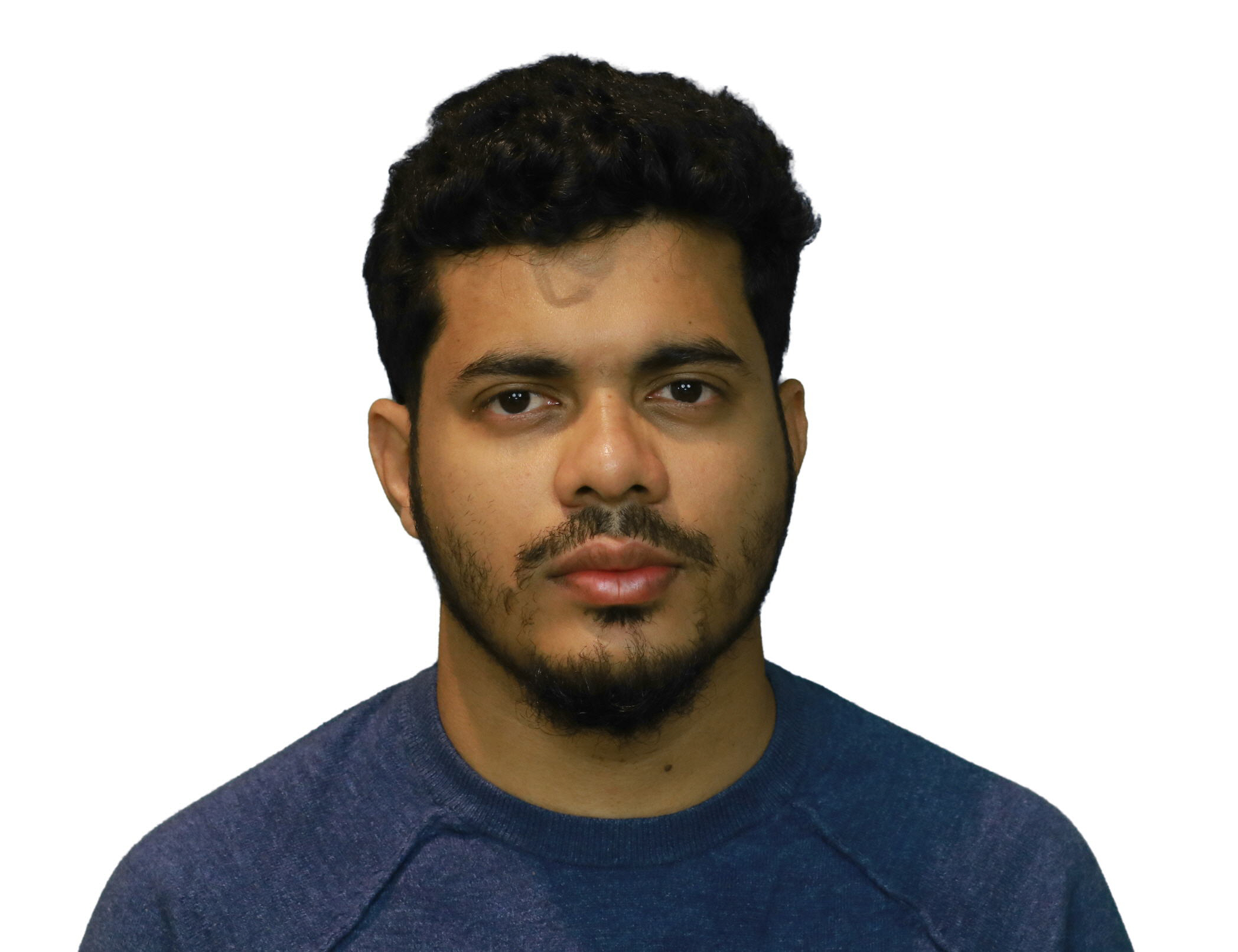| Date | Speaker | Title |
|---|---|---|
| January 9 | Liwei Jiang | Humanistic, Pluralistic, and Coevolutionary AI Safety and Alignment |
| January 23 | Christopher Potts | The Archai of Palimpsestic Memorization |
| January 30 | Swabha Swayamdipta | Small Samples, Big Reveal: What can we learn from limited observations of Language Model behavior? |
| February 6 | Shrimai Prabhumoye | From Next-Token Prediction to Next-Generation Intelligence: The Future of Pretraining |
| February 20 | Eugenia Rho | When Language Models Adapt, Teach, and Train: Evaluation and Design Challenges for Human-Centered NLP |
| February 27 | Raj Dabre | The Role of Romanization in LLMs |
| March 6 | Eric Wang | TBD |
🚀 Upcoming Talks
The Role of Romanization in LLMs
![]() February 27, 2026, 2:00 PM PT
February 27, 2026, 2:00 PM PT
![]() https://ucla.zoom.us/meeting/register/ibourzJDSSqSZpCDMZaEng
https://ucla.zoom.us/meeting/register/ibourzJDSSqSZpCDMZaEng
Speaker Bio:Raj Dabre is a Research Scientist in Google Research in Sydney, Australia, and a visiting faculty at IIT Madras. In his current role, he focuses mainly on efficiency and multilingualism for Gemini with a focus on LLM post-training and reinforcement learning. He previously worked as a Researcher at NICT in Tokyo on machine and speech translation, efficiency, low-resource languages, especially Indic and Creole languages and dialects.
Abstract:Multilingual LLMs are trained on language data where the data is primarily written language specific scripts. However, it is common practice for people to write in Roman script (transliteration) which presents an interesting question: "Given an English centric LLM, can we exploit latent romanization to improve non-English capabilities?". I will first present our investigation on the same, where we show that romanized representations can be harnessed to enable efficient and high quality generation in languages the model has poor support for. This further begs an investigation on what point in the model romanization manifests and it's role in multilingual LLMs. Via logit lens and activation patching, I will show that romanized representations tend to emerge around the middle layers of the transformer, and are well aligned with their native script representations. This also highlights possible reasons for how transfer learning happens from English to non-English languages.
Past Talks
When Language Models Adapt, Teach, and Train: Evaluation and Design Challenges for Human-Centered NLP
![]() February 20, 2026, 2:00 PM PT
February 20, 2026, 2:00 PM PT
![]() Rm 289, Engineering VI
Rm 289, Engineering VI
Speaker Bio:Eugenia Rho is an Assistant Professor of Computer Science at Virginia Tech, where she studies how AI mediates human communication and how people adapt to it. Her research develops computational frameworks and interactive systems for language generation that are responsive to social dynamics, human reasoning, and real-world outcomes. She leads the Society + AI & Language (SAIL) Lab. Her work is motivated by a long-standing interest in how language shapes thought, interaction, and decision-making. Drawing on methods from natural language processing, human–computer interaction, and statistics, she models the social consequences of language, designs AI systems that support human interaction, and grounds model reasoning in diverse human contexts. Together, these directions contribute to a foundation for AI that seeks to understand not only what language means, but what it does. Her research has been featured in NPR, CNN, Forbes, PBS, Newsweek, Scripps News, and Scientific American. Prior to joining Virginia Tech, she was a postdoctoral researcher in the Stanford NLP Group working with Dan Jurafsky. She received her Ph.D. from the University of California, Irvine, and her B.A. from Columbia University.
Abstract:Large language models are increasingly positioned as personal advisors, collaborators, and coaches. As the role of AI evolves from text generators to interactive agents embedded in everyday life, the central question shifts from what language models can generate to what generated language does in context, raising new challenges for HCI x NLP research. How can AI agents adapt to users without stereotyping them? How do different human-AI team structures change how agent suggestions are interpreted, discussed, and used by humans? And how do agent suggestions shape what humans do, decide, and learn over time? This talk draws on three case studies to explore these questions. (1) Personalization and bias. We develop a stereotype-grounded audit methodology to study disclosure-based personalization in LLM advice. Across multiple models, identity disclosure systematically shifts recommendations toward more risk-averse or stereotype-aligned decisions. These results complicate standard bias evaluation pipelines by showing that behavioral differences in models cannot be interpreted without user context and expectations, motivating interaction-aware audit frameworks. (2) Learning with LLMs. In a controlled pair-programming study, we compare human–AI pairs with human–human–AI triads. When working alone with AI, participants frequently incorporated its suggestions into their solutions. When collaborating with a human peer alongside AI in the human–human–AI (HHAI) condition, participants became far more selective, discussing and filtering suggestions before using them. These findings show that how model suggestions are taken up, and how people talk around them, depends strongly on the human–AI teaming structure and points to the importance of examining not only what models generate but how their suggestions are used in practice. (3) AI-mediated communication training. We study LLM-based communication coaching systems that generate role-play scenarios and feedback for workplace conversations. These systems raise open questions for NLP about intent modeling, longitudinal adaptation, and how to evaluate models when success involves longer-term changes in user behavior rather than immediate task accuracy. Together, these cases highlight emerging challenges for HCI x NLP as agents are used to advise, teach, and train humans. They point to the need for personalization that adapts without stereotyping, evaluation approaches that go beyond static outputs, and a better understanding of how generated language shapes user decisions and learning over time.
From Next-Token Prediction to Next-Generation Intelligence: The Future of Pretraining
![]() February 6, 2026, 2:00 PM PT
February 6, 2026, 2:00 PM PT
![]() https://ucla.zoom.us/meeting/register/EJ045rMZSV2fccKSKDbG5Q
https://ucla.zoom.us/meeting/register/EJ045rMZSV2fccKSKDbG5Q
Speaker Bio:Shrimai Prabhumoye is a Senior Research Scientist at NVIDIA’s Applied Deep Learning Research Group and an Adjunct Professor at Boston University. Her work advances the state of large language models (LLMs) through innovations in pretraining algorithms that emphasize data selection, blending, and ordering strategies, as well as the use of reinforcement-based objectives to instill foundational reasoning abilities. She is the lead contributor to NVIDIA’s Nemotron family of models, driving progress in data and reasoning. Shrimai earned her PhD in Computer Science from Carnegie Mellon University, where she focused on controllable text generation and computational ethics. Her research has been featured in VentureBeat, Forbes, and TechCrunch.
Abstract:This talk presents recent progress in pretraining algorithm design for large language models (LLMs), emphasizing the role of data ordering, reasoning-centric data integration, and reinforcement-based objectives in shaping model capability. We introduce a two-phase pretraining framework that formalizes strategies for data selection, blending, and sequencing, and demonstrate that front-loading reasoning-rich data during pretraining yields persistent gains in reasoning accuracy that post-training alone cannot reproduce. Further, we propose Reinforcement Learning during Pretraining (RLP) — a reinforcement-based objective that treats chain-of-thought generation as exploratory behavior, rewarding trajectories that maximize token-level information gain. Empirical results across diverse model scales show that structured data ordering combined with RLP improves downstream accuracies, and reasoning generalization, establishing a principled approach for integrating reasoning as a first-class objective in LLM pretraining.
Small Samples, Big Reveal: What can we learn from limited observations of Language Model behavior?
![]() January 30, 2026, 2:00 PM PT
January 30, 2026, 2:00 PM PT
![]() Rm 289, Engineering VI
Rm 289, Engineering VI
Speaker Bio:Swabha Swayamdipta is an Assistant Professor of Computer Science and a co-Associate Director of the Center for AI and Society at the University of Southern California. Her research interests are in natural language processing and machine learning, with a primary interest in the evaluation of generative models of language, understanding the behavior of language models, and designing language technologies for societal good. At USC, Swabha leads the Data, Interpretability, Language and Learning (DILL) Lab. She received her PhD from Carnegie Mellon University, followed by a postdoc at the Allen Institute for AI and the University of Washington. Her work has received outstanding paper awards at EMNLP 2024, ICML 2022, NeurIPS 2021 and ACL 2020. Her research has been supported by awards from NIH, NSF, Apple, the Allen Institute for AI, Intel Labs, the Zumberge Foundation, the Simons Foundation, and a WiSE Gabilan Fellowship.
Abstract:The majority of popular language models today are both large-scale and close-sourced, making studying their behavior quite challenging. This talk tries to answer how much we can learn from limited observations of language model behavior. First, we show that language models can be reliably evaluated using even randomly selected microbenchmarks of a certain size. Second, we use language model outputs, i.e. next-token probability distributions, to build prompt inversion attacks to reveal hidden prompts with high accuracy. These findings highlight the importance of scientific research into large language models without access to large computation resources, while still allowing accountability for the providers, as well as efficient and reliable evaluation.
The Archai of Palimpsestic Memorization
![]() January 23, 2026, 2:00 PM PT
January 23, 2026, 2:00 PM PT
![]() Rm 289, Engineering VI
Rm 289, Engineering VI
Speaker Bio:Christopher Potts is Professor of Linguistics and, by courtesy, of Computer Science at Stanford, and a faculty member in the Stanford NLP Group and the Stanford AI Lab. His research group uses computational methods to explore topics in context-dependent language use, systematicity and compositionality, model interpretability, information retrieval, and foundation model programming. This research combines methods from linguistics, cognitive psychology, and computer science, in the service of both scientific discovery and technology development.
Abstract:Kuditipudi, Huang, Zhu et al. (2025, "Blackbox model provenance via palimpsestic membership inference") provide an extremely effective, lightweight family of tests for whether one language model M1 is a derivative of another language model M2. The basic form of the test works like this: measure the correlation between the training data ordering for M1 and the likelihood that M2 assigns to those training examples. Fascinating … but how on earth did the authors come up with this? The tests were primarily developed by the three lead authors (Rohith, Jing, and Sally; henceforth RJS), and we may never know precisely what mix of genius, cosmic inspiration, and deep scholarship was at work here. However, I think we can see, at least in retrospect, that the necessary ingredients for proposing this test were basically present in the existing literature already. This talk will review that evidence, taking us on a hypothetical journey to these model provenance tests. I'll close by reviewing what we know the tests can teach us, and speculating about potential new applications and extensions of these ideas.
Humanistic, Pluralistic, and Coevolutionary AI Safety and Alignment
![]() January 9, 2026, 2:00 PM PT
January 9, 2026, 2:00 PM PT
![]() https://ucla.zoom.us/meeting/register/h1yPiSJmTdKdXDq5BE9pXA
https://ucla.zoom.us/meeting/register/h1yPiSJmTdKdXDq5BE9pXA
Speaker Bio:Liwei Jiang is a final-year PhD candidate in the Paul G. Allen School of Computer Science and Engineering at the University of Washington, where her research centers on humanistic, pluralistic, and coevolutionary AI safety and alignment. She develops computational frameworks for modeling human morality, advances culturally grounded and pluralistic value alignment, designs holistic safeguards for large language models, and explores future-oriented coevolutionary paradigms that integrate human-AI and AI-AI learning dynamics. Her work appears in top venues across AI, ML, and NLP, earning multiple Oral, Spotlight, Outstanding Paper, and Best Paper distinctions. She received her BA in Computer Science and Mathematics from Colby College, graduating summa cum laude.
Abstract:"In this talk, I will explore a central challenge for the next generation of AI systems: how to ensure that AI aligns with human morality, values, and needs in a world where those values are complex, diverse, and constantly evolving. As AI becomes deeply embedded in social, creative, and safety-critical settings, alignment must move beyond high-level principles toward concrete scientific frameworks and deployable technical methods. My work develops such a foundation and advances alignment across three complementary directions. I will begin by discussing how we can model human morality and pluralistic values in ways that are computationally grounded yet deeply informed by philosophy and cognitive science. This includes building representations of commonsense morality, cultural variation, and individual preferences, and showing how these learned structures can guide decision-making in large language models. Next, I will describe a line of research focused on putting value alignment into practice by developing holistic safety frameworks for language models. These include integrated red-teaming and defense pipelines, multilingual moderation tools, and system-level mechanisms that make LLMs steerable, controllable, and robust to evolving risks in real-world environments. Finally, I will turn to a forward-looking perspective on alignment: the idea of human–AI coevolution. I will outline how AI can augment human capabilities, how AI-to-AI interaction can drive iterative self-improvement, and how humans and AI together can form synergistic feedback loops that enable more capable, adaptive, and beneficial systems. Across these threads, the talk presents a unified vision of humanistic, pluralistic, and coevolutionary AI alignment—one that integrates moral reasoning, technical safety, and human–AI collaboration to support a future where AI systems act in ways that are meaningfully aligned with human values and ultimately contribute to human flourishing."








